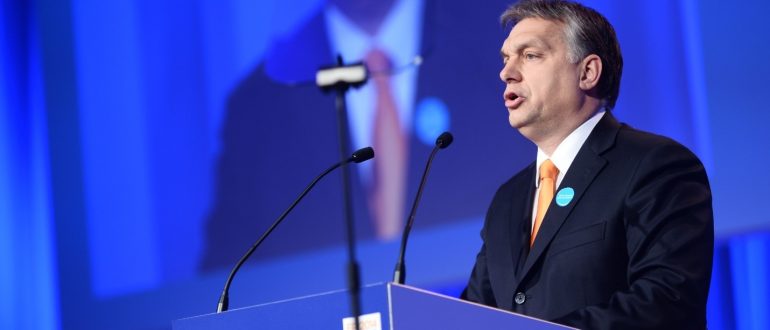
Populist governments and the EU: An ever more distant union
When the the United Kingdom left the European Union (EU) on the 31st of January 2020, the act seemed almost mundane compared to the drama leading up to it. By all accounts, the dominating feeling – except maybe among the most hardline Leavers and Remainers – was relief that the thing was finally over. But while the withdrawal has given a sense of finality to the vagaries of Brexit, it is far from clear whether the wave of anti-EU sentiment that swept Europe in recent years has crested with the British exodus.
If anything, the rise to power by populist movements in several other member states gives new urgency to debates about the EU’s crisis of legitimacy. In Austria, Bulgaria, Hungary, Italy, Poland and Slovakia, populist parties have been, or still are, part of the government. Apart from causing tectonic political shifts domestically, their electoral success also enables them to influence European politics across national boundaries.
Most analysts and practitioners from the political establishment interpret these dynamics as a challenge to EU institutions and the project of European integration. This is an intuitive conclusion, given the frequent association of European populist parties with nationalist ideology and anti-EU positions. However, research I have been conducting together with Agnese Pacciardi and Fredrik Söderbaum shows that while there is reason for concern, the relation between the populist inclinations of political leaders and their stance on regional cooperation is not as straightforward as many pundits suggest.
Take the case of Hungary under Viktor Orbán. Ever since the leader of the right-wing Fidesz party started his second term as Prime Minister in 2010, he has stirred up EU-skeptical sentiments. To advance his project of ‘illiberal democracy’, Orbán couples staunchly nationalist rhetoric with frequent criticism of EU institutions and its liberal democratic values. With this, he has caused irritation among policy-makers in Brussels and many European capitals, who allege that he is undermining the rule of law both at home and in the EU’s external policies. His closeness to authoritarian leaders like Turkey’s Recep Tayyip Erdoğan and Russia’s Vladimir Putin is a case in point, as is his decision to help Nikola Gruevski, the former Prime Minister of what is now Northern Macedonia, escape imprisonment for corruption by granting him asylum in Hungary. Orbán’s drastic measures to suspend domestic checks and balances in the government’s response to the Coronavirus have further exacerbated the tensions and were condemned by central figures in European politics.
However, that is only half the story. The other half is that of a self-declared pro-EU government. Speculations of a ‘Hunxit’ – a Hungarian withdrawal from the EU following the British model – have proved unfounded. Instead, Orbán seems set on reforming the EU from the inside. In fact, Hungary is one of the few member states whose government is currently advocating further EU enlargement to the Western Balkans. Neither have fears proven true that the so-called Visegrád Group (V4), in which the Hungarian government cooperates with its counterparts from the Czech Republic, Poland and Slovakia, would develop into a destructive alliance blocking reforms and innovative policies in the EU. Instead, the V4 use their forum to develop common positions and speak with one voice on EU policies, for example by lobbying against cuts to agricultural funds and demanding tighter controls of the Union’s borders. The V4 has also assumed a pioneering role in military cooperation by establishing a Visegrád Battlegroup under the umbrella of the EU’s Common Security and Defence Policy.
All of this points to active engagement in regional cooperation schemes, rather than outright isolationism. This confirms our research, where we find that populist governments develop foreign policy discourses and strategies that are open to regional cooperation despite their often nationalist outlook. Of course, the dependence on EU funds partially explains why the Hungarian government keeps reining in its nationalism. But it is not all about the money. We also see that populists find certain forms of cooperation useful for their political strategy of playing the morally pure ‘people’ against the corrupt ‘elites’. Both the EU and the V4 provide multiple public stages on which Orbán and other populists can enact their image as representatives of the true ‘will of the people’ (which they claim to somehow know). By criticising allegedly detached and technocratic EU institutions and demanding reforms that return sovereignty to the member states, they can demonstrate that they are serious about ‘taking back control’ from Brussels.
Populist leaders can also showcase their mutual support in these arenas, which is a crucial source of legitimation when others at home and abroad cast doubt over their democratic credentials. Finally, they can put issues on the European agenda that are crucial for the mobilisation of domestic political support. It is no surprise that the Hungarian government’s regional engagement is especially strong on issues that have implications for border control as well as the EU’s migration and asylum policies, such as defence cooperation and the partnerships with the EU’s Eastern and Southern neighbours.
The nationalism that forms the core of right-wing populism in Hungary and other European countries does not prevent engagement across borders. By grafting transboundary identities on top of national ones, populists can provide an ideational foundation to regional cooperation. Orbán has promoted the notion of Central Europeanness to foster solidarity among the Visegrád states in the face of what he describes as a common external threat – refugees/migrants from purportedly alien cultural backgrounds – to their common way-of-life based on Christian belief and conservative (or reactionary) family values. “The Hungarian people”, he solemnly declared when taking over the V4 presidency in 2017, “are in love with the Central European idea.” Such regional identities are a common feature of populism across the political spectrum, as demonstrated by the Bolivarian ideology of Americanismo promoted by populists like Venezuela’s Hugo Chávez and Bolivia’s Evo Morales.
It is obvious that European populists instrumentalise the EU for their domestic political purposes. The good news is that these strategies, in fact, create possibilities for cooperation across the populist-liberal divide on matters of shared concern. Orbán himself has called for a compromise between the two camps. Fears that the European project will implode, therefore, overplay the populist challenge. At the same time, the liberal core of the EU (if such a thing exists) needs to be careful when building bridges. The way in which member states with non-populist governments have accommodated right-wing demands for a more restrictive migration and asylum regime highlights the risk of further marginalising already vulnerable groups. Engaging populists without buying into their claims to exclusive representation of the ‘will of the people’ is a tightrope act.
This is an updated version of an article which was first published on blogalstudies.com.
Disclaimer: The views and opinions expressed in this article are those of the author and do not necessarily reflect the opinion of IFAIR e.V. or its members.

Kilian Spandler
Kilian Spandler is a Researcher at the School of Global Studies. Together with Agnese Pacciardi and Fredrik Söderbaum, he is studying the implications of populism for regional cooperation within the project Regional Cooperation and the Transformation of National Sovereignty (TRANSFORM).
